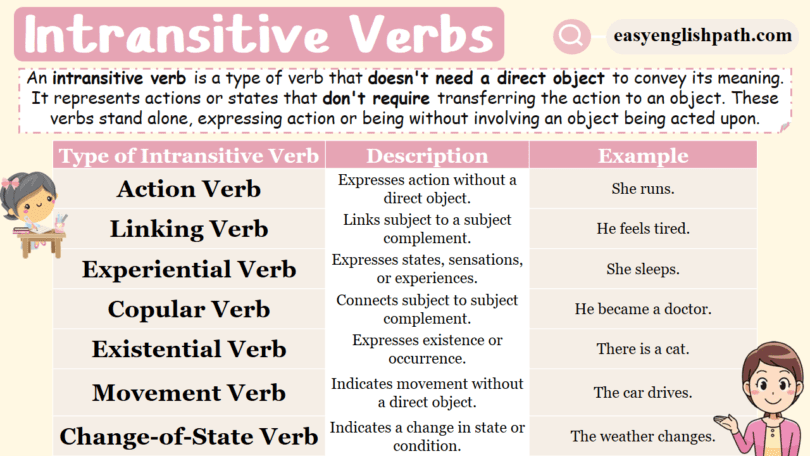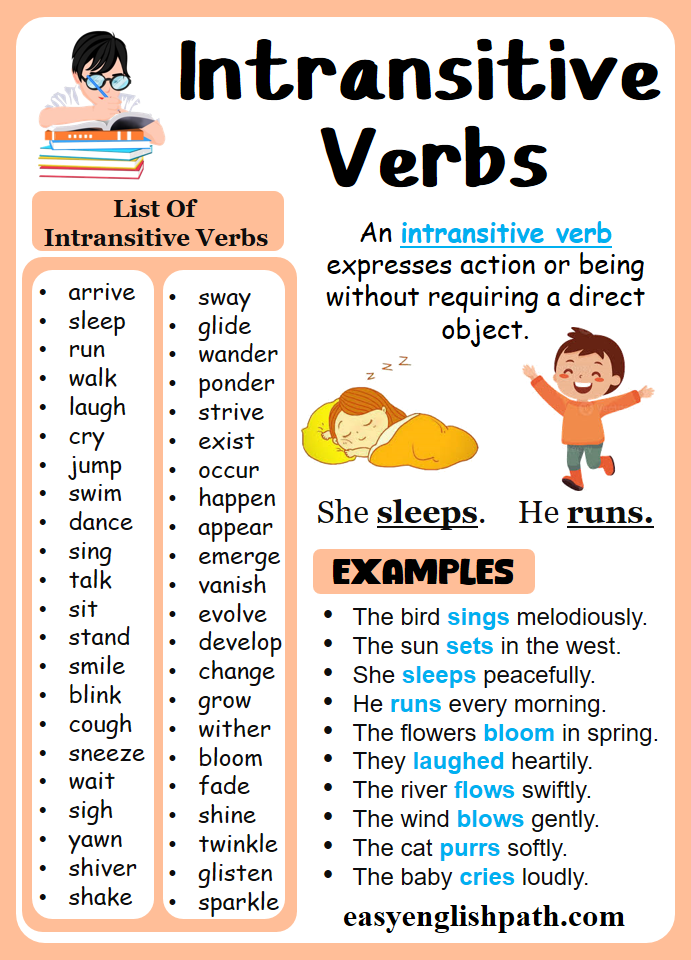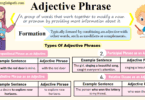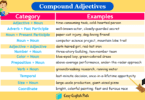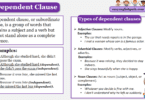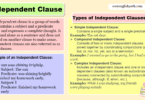Intransitive verbs are like action words in grammar that don’t need anything else to finish their job. They do things all on their own. Intransitive Verbs Examples include, ‘run’ or ‘jump’ are intransitive verbs because you don’t need to add anything after them. They can stand alone. Even words that show feelings or thoughts, like ‘think’ or ‘dream’, are also intransitive verbs. These words help us talk about what we do or feel without needing to mention anything else. Learning about these simple verbs helps us speak and write clearly and express ourselves better.
What are Intransitive Verbs?
Intransitive verbs are action verbs that do not require a direct object to complete their meaning. They describe actions or states that do not transfer to another person or thing. In other words, they don’t have an object receiving the action. Instead, they often describe what the subject of the sentence is doing.
Examples:
- She sleeps.
- The birds fly.
- He laughed.
- The sun shines.
Types of Intransitive Verbs:
- Action Verbs
- Stative Verbs
- Cognitive Verbs
- Verbs of Motion or Change
- Verbs of Existence or Being
- Reflexive Verbs
- Inchoative Verbs
Action Verbs:
These verbs describe physical or mental actions performed by the subject.
Examples:
- run
- jump
- laugh
- think
- cry
- dance
- write
Stative Verbs:
These verbs describe a state or condition rather than an action. They often express emotions, senses, thoughts, or relationships.
Examples:
- exist
- belong
- seem
- appear
- feel
- smell
- taste
- love
- hate
- prefer
Cognitive Verbs:
These verbs involve mental activities such as thinking, understanding, or perceiving.
Examples:
- Think
- understand
- know
- realize
- remember
- forget
- believe
Verbs of Motion or Change:
These verbs describe movement or changes in position, state, or condition.
Examples:
- arrive
- depart
- rise
- fall
- grow
- shrink
- develop
Verbs of Existence or Being:
These verbs indicate the existence or presence of something.
Examples:
- exist
- appear
- remain
- live
- survive
Reflexive Verbs:
These verbs describe actions that the subject performs on itself. While reflexive verbs can be both transitive and intransitive, when used intransitively, they don’t require an object because the action is directed back onto the subject itself.
Examples:
- bathe
- shave
- pride oneself
- relax
- hurt oneself
Inchoative Verbs:
These verbs indicate the beginning or onset of an action, state, or condition.
Examples:
- begin
- start
- commence
- arrive
- emerge
- appear

